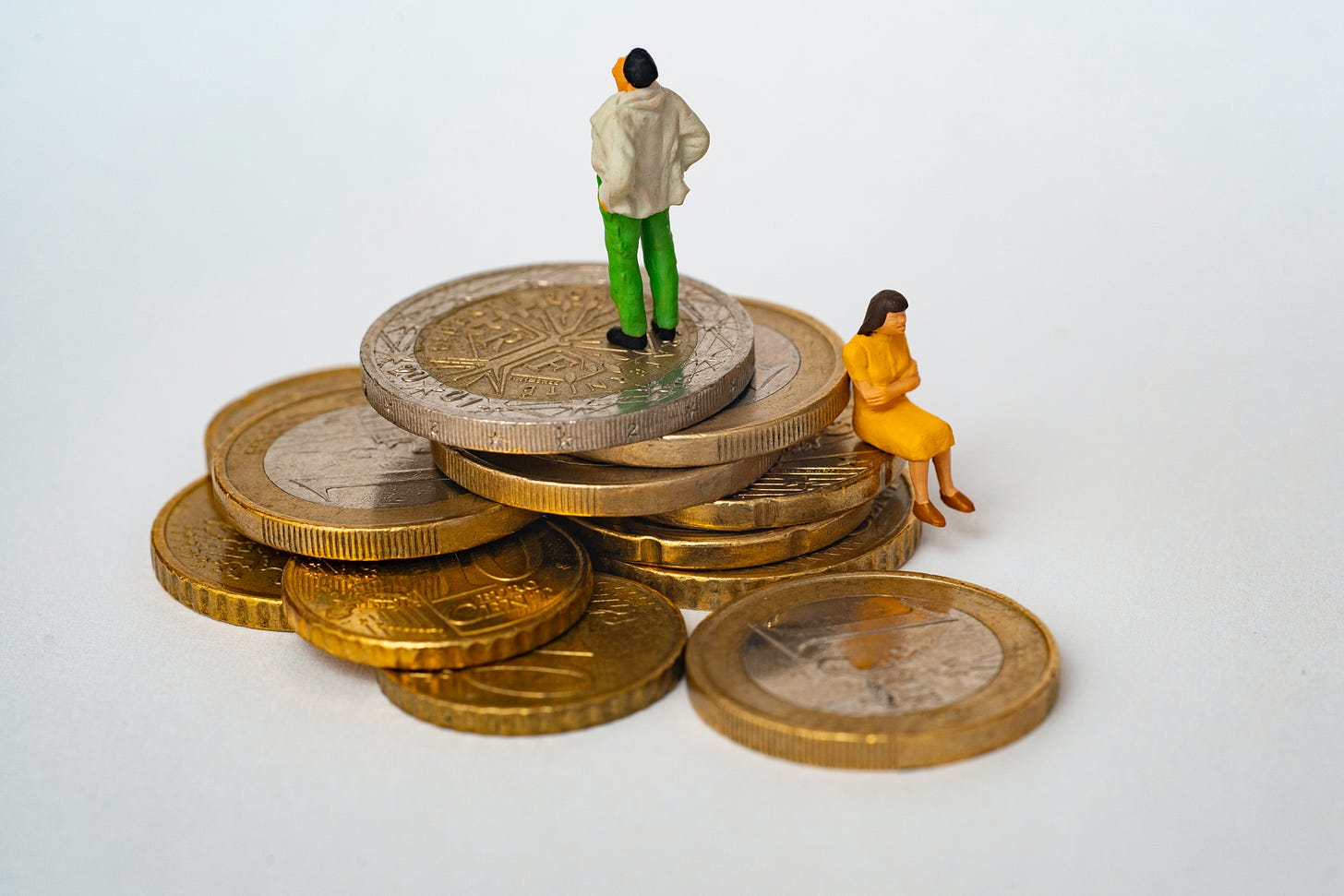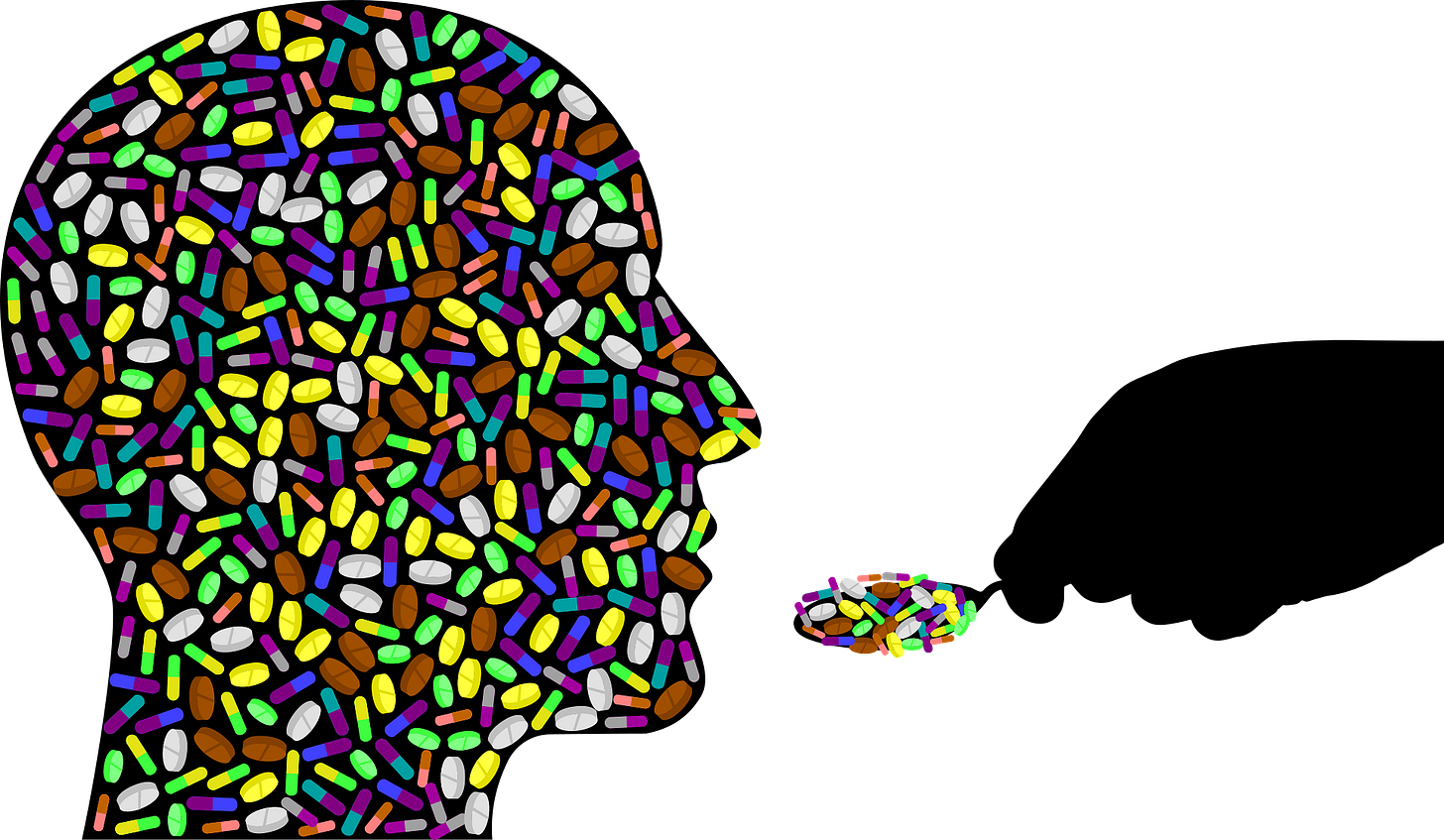Capitalism developed from feudalism which is the direct continuation of biological evolution. People are not only transmitting their genes to their offspring now but also their capital. This democratic invention guarantees that unviable gametes can also become owners of large businesses. Inheriting property is a remarkably progressive feature ensuring that original capital accumulation doesn’t have to occur in every generation. And, although Jennifer Brown from South Chicago1 may possess less capital than a junior Rotschild, both young people have equal chances in life.
Source: Mathieu Stern, Unsplash
While Jennifer does not own anything as of now, our fair system entitles her to attain any amount of funds. The accumulation of capital is, of course, greatly assisted by having unconquered, virgin territories nearby with no people, like America in the time of Columbus or Eastern Europe at the fall of communism.
Capitalism is extremely efficient because it is not motivated by ideology but profit. Money talks more eloquently than a priest, and, in modern society, profit is everything. If a school, hospital, spouse, or piece of art is unprofitable than it has no place in capitalism. Opioid medicines brought enormous profit while also effectively curbing overpopulation and did anyone from Big Pharma go to jail? If there is profit in your pocket you can hire lawyers or a prophet.
Source: Gordon Johnson, Pixabay
There are many kinds of capital, money-lender’s capital, monopoly capital, debt capital, equity capital, working capital, vulture capital, trading capital and so on. Working capital could be assets owned by workers but remember that in this system everything is owned by the capitalists. Monopoly capital is like when an election debate is attended by only one nominee who debates with himself and you have to decide which of him to vote for. Money lender’s capital takes an inordinate amount of money for not doing anything, in opposition with bank loans that take somewhat less money for not doing anything. Vulture capital is the most honest kind, after all, vultures only consume the dead, performing a useful cleaning function. Financial capital means that people who have access to unimaginable quantities of funds support development projects in order to further progress. As an example they may clear a certain territory of tropical forest and backward groups of people who are in the way of advancement, exploiting resources for the Greater Good.
Source: Aidenvironment, 2006 - flickr:Riau flickr user:Wakx, CC BY-SA 2.0, https://commons.wikimedia.org/w/index.php?curid=10605283
Capitalism in practice means that the rich get even richer. Resources can be taken from two sources: from the poor who are already bankrupt, so it makes little difference, or from nature that will regenerate in a few short millions of years. Capitalists make money by having money. The money thus gained will be used to make even more money. Once they get up to a certain level they can begin to make money orders of magnitude more than before. The question might arise: What use is it to have that much money? But the money is not for the benefit of capitalists but society. Capitalists give work to people by investing money. The people can then manufacture plastic cows, for example, which they can then purchase with the money they made and erect it in their gardens. Capital also creates commodities for society, like F35 fighter bombers that cost a mere eighty million dollars apiece. Since the US Army possesses less than three hundred F53s, you can easily see that they are in dire need of the further fourteen hundred requested.
Source: https://commons.wikimedia.org/w/index.php?curid=2467463
This grand scale betterment of society overshadows the money capitalists spend on personal items, the few castles, islands, countries, continents that they possess. And even these are used constructively; their cars give work to assembly robots, thieves, policemen, surgeons, grave diggers and so on. This is what keeps the economy in motion just like the rotors of the helicopters capitalists use for commuting, refreshing the air and giving musical experiences to the rest of humanity.
Another main advantage of capitalism is that it makes products more affordable. If producing a box of aspirin costs one Euro, then Bayer sells it for 70 cents in Thailand. Cynical critics could say that yes, but in Germany the same box costs seven Euros. These low-life scroundles don’t take into account the possibility that capitalism offers: Germans can board an airplane owned by capitalists, travel to Thailand and get their box for 70 cents. True, after local producers have gone bankrupt, the price will go up in Thailand as well, but you can still look for a country where Bayer is in the process of taking down the competition. Once Earth runs out of such places, capitalism will take over other celestial bodies. Growth is insuppressible!
Capitalism is also great because it invented the idea of a legal person. This is extremely useful, because when a factory blows up, those progressive people who are incessantly working on bettering human life standard cannot be made responsible since a company cannot be put behind bars. Some people complain that in Bhopal, India in 1984 half a million people were poisoned, a few thousand perished, with the same number becaming blind. But have you thought about just how many million people live in India? Thanks to good lawyers the American parent company skillfully avoided impeachment of the leaders. Progress would be severely hampered if in such cases it were not possible to transfer the assets to other companies and build a new factory in another city, not to mention the fact that if all safety measures were followed, the company's profits would be reduced and society would be stuck in the Stone Age. Progress, unfortunately, comes with sacrifices.
© Yann Forget / Wikimedia Commons, CC BY-SA 4.0, https://commons.wikimedia.org/w/index.php?curid=9646513
The term “capitalism” is ultimately derived from the Latin word for “head”. What would we do without our heads? Anyone with a head can see that capitalism is the boss. Even dirtballs regularly head to the head shop. Capitalism is a capital thing, every country has a capital. Every sentence begins with a capital, and anyways, he who pays the piper calls the tune.
The first people called capitalists were those that provided a loan to a government so that it could conduct wars. Life is an endless struggle, after all. But even perfect systems change: Nowadays, for example, we see a concentration of capital. Concentration, as we know, is a very positive thing. Concentrated hydrochloric acid cleans the drain, and soon afterwards it also cleans the river of the disgusting crawling things that live in it. If we concentrate hard on the lottery numbers, sooner or later someone will get a winning ticket. Lord Kitchener, who later became British War Secretary, invented concentration camps that won the Boer War. They did result in some civilian casualties, but were later used very successfully in Europe. In addition, Kitchener received a lot of money and honors, even having a city named after him in Canada. Let’s not be too critical; let us focus on the benefits. The fewer giant companies there are that concentrate power, the less we have to worry about which multinational to buy from or which one to apply to for the post of a stock replenisher.
Source: ekenamillwork, Pixabay
The opposite of capitalism is communism. It differs from capitalism in that in the latter the capitalists’ role is played by the CEO and there is no competition, unlike in monopoly capitalism. Another important difference is that whereas communism had a planned economy with five-year plans, the European Community boasts seven-year development plans. Communism failed miserably, which shows that any economic system other than capitalism could only be a laughing stock, a naive nonsense. If hamburgers cause stomach ache, obviously cheeseburgers are the only possible thing to eat. It would be a capital mistake to believe that there can be a better system, so let's not even try. It is a wonder how Homo sapiens managed to survive for centuries without capitalism. Man, and indeed the Universe, is transient, but greed is eternal!
Source: Ryan McGuire, Pixabay
A Black ghetto






